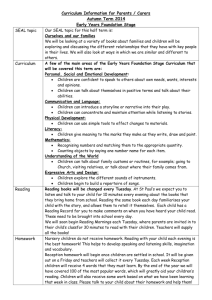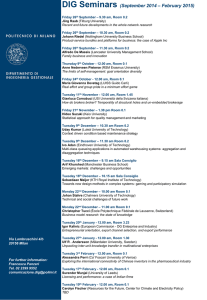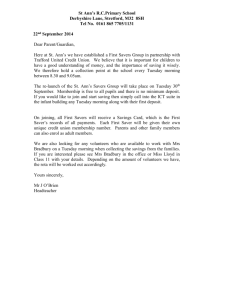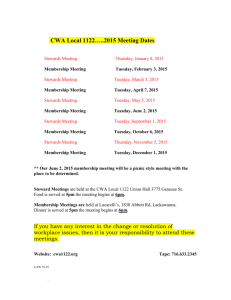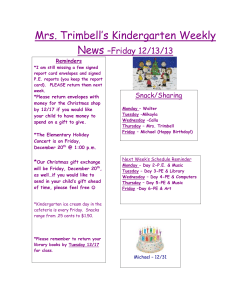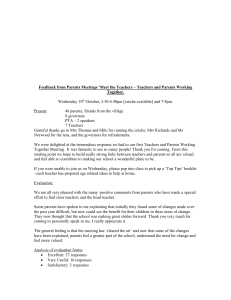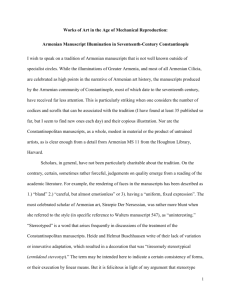Instructor - University of Southern California
advertisement
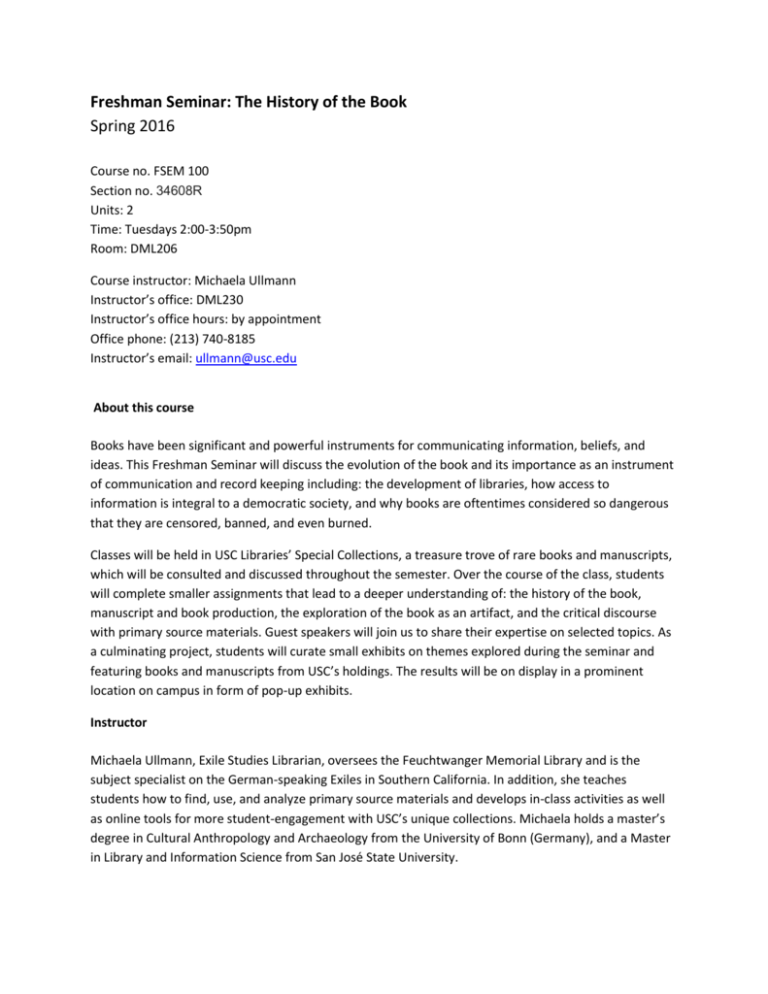
Freshman Seminar: The History of the Book Spring 2016 Course no. FSEM 100 Section no. 34608R Units: 2 Time: Tuesdays 2:00-3:50pm Room: DML206 Course instructor: Michaela Ullmann Instructor’s office: DML230 Instructor’s office hours: by appointment Office phone: (213) 740-8185 Instructor’s email: ullmann@usc.edu About this course Books have been significant and powerful instruments for communicating information, beliefs, and ideas. This Freshman Seminar will discuss the evolution of the book and its importance as an instrument of communication and record keeping including: the development of libraries, how access to information is integral to a democratic society, and why books are oftentimes considered so dangerous that they are censored, banned, and even burned. Classes will be held in USC Libraries’ Special Collections, a treasure trove of rare books and manuscripts, which will be consulted and discussed throughout the semester. Over the course of the class, students will complete smaller assignments that lead to a deeper understanding of: the history of the book, manuscript and book production, the exploration of the book as an artifact, and the critical discourse with primary source materials. Guest speakers will join us to share their expertise on selected topics. As a culminating project, students will curate small exhibits on themes explored during the seminar and featuring books and manuscripts from USC’s holdings. The results will be on display in a prominent location on campus in form of pop-up exhibits. Instructor Michaela Ullmann, Exile Studies Librarian, oversees the Feuchtwanger Memorial Library and is the subject specialist on the German-speaking Exiles in Southern California. In addition, she teaches students how to find, use, and analyze primary source materials and develops in-class activities as well as online tools for more student-engagement with USC’s unique collections. Michaela holds a master’s degree in Cultural Anthropology and Archaeology from the University of Bonn (Germany), and a Master in Library and Information Science from San José State University. Grades and Expectations This is a credit/no-credit course. Students are expected to study selected readings in the relevant areas and are expected to attend regularly and to participate in course activities. Class Schedule Week 1 (Tuesday, January 12) Introduction to the course. What is Special Collections & and how do you access and work with materials here? Pictograms, Cuneiform tablets, Hieroglyphics, and the beginning of the alphabet. Week 2 (Tuesday, January 18) Discussion of assigned reading. Libraries in the Ancient World Week 3 (Tuesday, January 26) Discussion of assigned reading. Manuscripts and manuscript production I Parchment, paper, ink, and gold leaf: The production of a medieval book. Hands-on activity: Writing with a quill Week 4 (Tuesday, February 2) Manuscripts and manuscript production II Hands-on activity: Examining Manuscripts (group work) Week 5 (Tuesday, February 9) Discussion of homework (Manuscript assignment) The introduction of printing: How is a printed book created and who is involved in the process? Week 6 (Tuesday, February 16) Discussion of assigned reading. Printed books, printers, and the impact of the printed book. Week 7 (Tuesday, February 23) Discussion of assigned reading. Hands-on activity: Examining early printed books (group work) Week 8 (Tuesday, March 1) Discussion of homework (Early printed book assignment) Banned Books, censorship & the importance of access to information. Week 9 (Tuesday, March 8) Discussion of homework (Banned Books assignment) Discussion & distribution of final projects for pop-up exhibits. Week 10 (Tuesday, March 23) Work on final projects for pop-up exhibits. Week 11 (Tuesday, March 30) Presentations of pop-up exhibits in the library. Student Learning Outcomes Upon successful completion of the course, students will be able to: 1. Exhibit familiarity with the materials and methods of book production in various parts of the world from the manuscript era to the present. 2. Discuss the relevance of libraries and access to information in general. 3. Exhibit awareness of forces that lead and can lead to censorship of art and the expression of opinions. Recommended Reading (copies of these and other texts will also be provided in class) Avrin, L. (2010). Scribes, Script and Books (Reprint of 1991 ed.). Chicago, IL: American Library Association. Brown, M. P. (1994). Understanding Illuminated Manuscripts. Los Angeles: Getty Publications. Casson, L. (2002). Libraries in the Ancient World. New Haven, CT: Yale University Press. Diringer, D. (1982). The book before printing. New York: Dover. Febvre. L. (1976). The Coming of the Book: The Impact of Printing 1450-1800. Trans. David Gerard. London: Verso.


